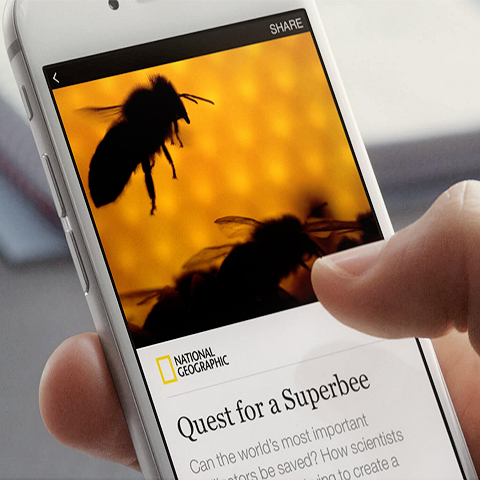Is Facebook's Instant Articles a sly move against Net Neutrality?

Much has been written about Facebook’s new service and its benefits to publishers. Selected content is pre-loaded to devices allowing for much faster page upload speeds once content is clicked on. This means certain content providers benefit from a significant hike in service levels, which should lead to an improved experience for those accessing said content on mobile devices. At the launch of Facebook Instant Articles, there were 9 content partners - The Atlantic, BBC News, Bild, BuzzFeed, The Guardian, National Geographic, NBC News, The New York Times and Spiegel Online.
There has already been a bit of a backlash from advertisers who rightly bemoan that their paid-for-services are now being superseded by another source. In some ways I am entirely in favour of this, as I detest interruptive / interstitial advertising, and would much rather have everything served up on a Native Advertising / Advertorial basis via sponsored articles - which in many ways these are.
The hidden impact of all of this is what it’s doing to the customers’ Data allowances. Most users of 4G are typically on some sort of Data Plan - as am I. I have never been happy that advertisers use up my Data Plan by uploading their unsolicited content and eating away at my allocation - there is a real cost to me for all this loading up of advertising. With Facebook pre-loading content, this is yet more of the same. I would love to know the exact algorithms applied, as Facebook Instant Articles is in effect loading up a load of potentially unsolicited content into your browser or app - much of which you will never choose to access. You are in effect paying a storage / penalty fee for items you might not know or care about - and might never access.
What is slightly more insidious is that this is going directly against Net Neutrality by giving preference to a small number of content providers. You end up with a 2-speed system by the back door - where some content takes the pre-loading express route, while other content is relegated to secondary level. It may just be me, but I seem to have noticed that some images and videos in my Facebook newsfeed are not loading up as quickly as they used to - conceivably because some other content is being pre-loaded preferentially in the background. By specifically discriminating in the preferences of the delivery system, Facebook could have a major impact on Net Neutrality - by allowing the wealthier media owners to relegate smaller content providers to second class status - quite a worrying trend ...

Did you find this content useful?
Thank you for your input
Thank you for your feedback
Upcoming and Former Events
Affino Innovation Briefing 2024
Webinar - Introduction to Affino's Expert AI Solutions - Session #2
Webinar - Introduction to Affino's Expert AI Solutions - Session #1
PPA Independent Publisher Conference and Awards 2023
Meetings:
Google Meet and Zoom
Venue:
Soho House, Soho Works +
Registered Office:
55 Bathurst Mews
London, UK
W2 2SB
© Affino 2024



















